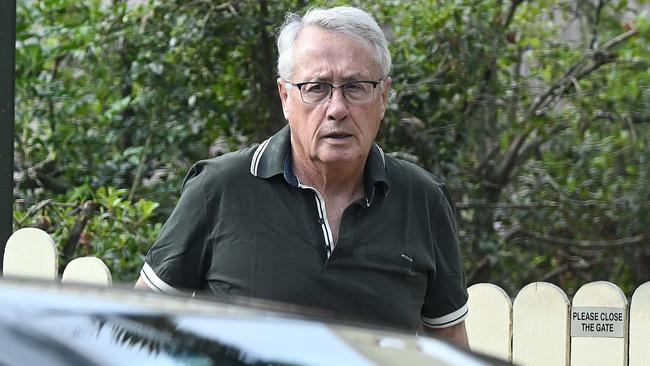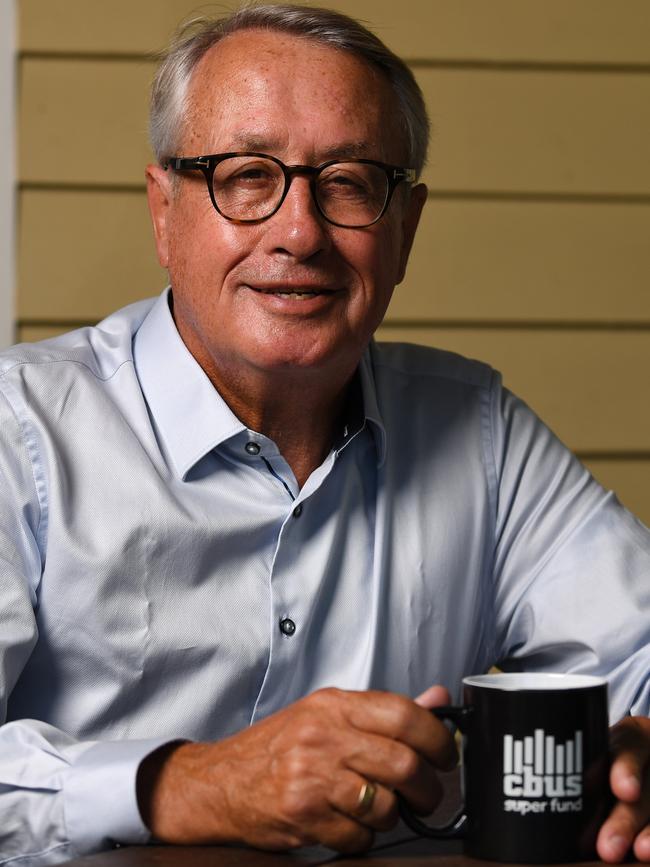Wayne Swan-chaired Cbus charged by ASIC over allegations it failed to pay $20m in benefits
One of the nation’s biggest super funds, Cbus, will face the Federal Court over alleged mishandling of $20m in insurance money owed to grieving families and people with disabilities, imperilling the political standing of its chair Wayne Swan.

Business
Don't miss out on the headlines from Business. Followed categories will be added to My News.
One of the nation’s biggest superannuation funds, Cbus, will face the Federal Court over alleged mishandling of $20m in insurance money owed to grieving families and people with disabilities, imperilling the political standing of its chairman, Labor Party president Wayne Swan.
The Australian Securities & Investments Commission has claimed that, in some cases, the $94bn fund took more than a year to pay out death benefits or disability payments to some of the country’s most vulnerable people.
ASIC will allege that Cbus did not take appropriate action when it was warned about the massive failures – covering up to 10,000 claims – and that people to this day may be waiting for payouts.
All of Cbus’s alleged failures occurred under Mr Swan’s watch, leading to questions about how the former federal treasurer and mentor of Jim Chalmers allowed the scandal to occur.
Despite concern over how the matter would be weaponised by the Coalition, Labor MPs said the scandal did not necessitate Mr Swan standing down as the party’s president, a role he has held since 2018.
The charges are another headache for the multibillion-dollar super fund, which has already been dogged for months over its links to the Construction Forestry and Maritime Employees Union and its ousted militant leadership.
Labor sources on Tuesday night were wary over how the breaches by Cbus would impact Mr Swan and the Labor Party. “I’d be looking at what something like a Senate economics committee does with it,” one Labor MP said.
While committees more often call chief executives of companies as witnesses to hearings, chairmen can also be called.
Coalition senator Andrew Bragg, the chair of the economics references committee and deputy chair of the economics legislative committee, left the door open to calling Mr Swan to appear over the matter. “Mr Swan has clearly wanted to be engaged in public debate in the past, so I say why not,” Senator Bragg said.
The Coalition would need the support of Greens committee members to launch an inquiry into the matter and haul Mr Swan before a hearing.
Another Labor MP told The Australian no company should be spared from punishment for wrongdoing, regardless of links to political parties.
“No one should be exempt,” the MP said. “(Cbus) have done the wrong thing now they’ve got to cop it.”

The Albanese government has publicly condemned the failures of major companies, including the supermarkets, which face legal action over alleged bogus discounts.
However, asked to comment on Cbus, a spokesman for Dr Chalmers said on Tuesday the allegations were “before the courts – it would be inappropriate to comment”.
At December 31, 2022, Cbus had allegedly failed to resolve more than half of its 7731 total permanent disability claims within one year. And more than half of 3622 death benefits claims had not been resolved within the same time frame. Just 11 per cent of processed claims were fewer than 90 days old, the watchdog claimed.
ASIC also alleged Cbus knew about “inordinate delays affecting thousands of members and claimants” but it failed to take prompt action to reduce losses.
ASIC deputy chair Sarah Court said delays in processing claims such as those alleged caused “real harm to families who may be relying on the payments to meet critical expenses”.
“By late 2022, more than 6000 Cbus members and claimants had their payments delayed by more than 12 months,” Ms Court said.
“Extraordinarily, that equates to more than 50 per cent of Cbus’s total claims at that time. We allege they are yet to completely rectify these issues.”
Ms Court said the watchdog claimed Cbus had “failed its members and claimants at their most vulnerable time”.
“We are taking this case to protect all those vulnerable Australians trying to access the financial support to which they are entitled,” Ms Court said. “The systemic failure by superannuation trustees to deliver essential member services in a timely manner is a key priority for ASIC and we will continue to take action to hold trustees to account.”
In a breach report to ASIC last December, Cbus estimated the financial loss to members was about $20m. But according to the Cbus website, last financial year it paid out $384m over 3629 claims. That would average out to about $106,000 per claim. If Cbus was too slow to process about 11,000 claims at an average of $106,000 each, then they could potentially be worth more than $1bn – significantly more than $20m.
ASIC has claimed that Cbus, despite receiving reports from its third-party administrator, Australian Administration Services Pty Limited, had failed to properly assess the scale of the impact to members and claimants.
The watchdog claimed Cbus’s attempt to respond to the issue in October 2022 – by implementing a “claims re-engineering plan” to clear backlogs, including the death and disability claims – was “inadequate and insufficient” to resolve the issue, according to a statement.
“It is further alleged that despite the matter being brought to the attention of the Cbus Risk Committee between November 2022 and February 2023, the trustee of Cbus failed to report these issues to ASIC as required within 30 days of becoming aware of them,” the statement said.
Ms Court said the delay added to difficult personal circumstances. “The additional anxiety and pain these delays caused compounded the issues these members and their families faced,” she said.
In a statement, Cbus apologised. “Cbus Super is sorry that delays have been experienced in the processing of insurance claims made by our members. Regrettably this has added to the distress of members and their families,” the statement read.
“Cbus has implemented a number of measures that are reducing delays and is committed to further improving management of insurance claims.
“Cbus has established a compensation program for affected members which is being implemented now.”
The super fund said it had been co-operating with ASIC during an investigation, and noted the watchdog commenced proceedings in the Federal Court.
“Cbus will invite ASIC to engage in alternative dispute resolution processes to avoid protracted litigation,” it said.
According to the latest Cbus annual report, the company paid out $384m in insurance payments in the last financial year.
News about the court action came after the prudential regulator ordered Cbus to review whether seven of its CFMEU-appointed directors were fit to hold their positions following damaging allegations about the union.
The Australian Prudential Regulation Authority in August imposed additional licence conditions on the fund trustees and ordered them to employ an independent expert to determine whether the directors should hold their positions according to prudential standards.
Originally published as Wayne Swan-chaired Cbus charged by ASIC over allegations it failed to pay $20m in benefits



